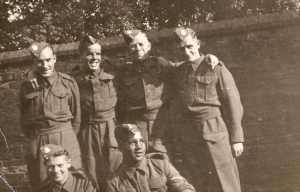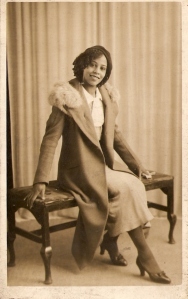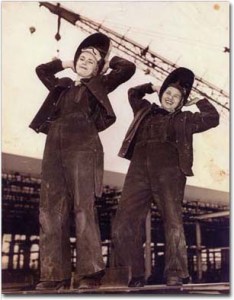Things have been going well in terms of creative workshops; getting interested people into see and respond to the different exhibitions that Tyne and Wear Museums and Archives have rolled out in support of World War 1, Wor Life.
Here we would like to share some of the creations. More can be read within the writings section of this website.
The first poem comes from Caroline Kemp.
Caroline writes: This poem is about my German grandmother, Mimi, who wrote a diary in August 1914 for 5 weeks. I have just translated it from German. Her husband, Louis, is having
to leave for the front and my father is only a few weeks old
LAST NIGHT
The night is heavy
Bare essentials packed
Mimi cries all night
Will this be my last night
Ever?
There is no comfort I can bring to her
I cannot stay
Gesund und munter I have to be,
I have to stay.
Mimi’s head breaks
Warfilled
Can find no peace
No rest
Legs that cannot settle
In any room
On any bed
Each sound shock electric
Is he in a field, a field, the mud of a field?
Each night she sleepwalks
her way to the letterbox
An eternity of a wait
Is he safe?
There is no comfort in the postcard
when it arrives
It is already old, out of date
His breath could be gone
And heart beat beating on?
Gesund und munter he said
Gesund und munter he said
Fine and dandy
The bodies hundreds of them fill the fields.
We must bury them her brother says
Hundreds but hundreds.
He has no words to describe his day
What words would do?
Fine and dandy.
And on to another day
To keep his faith and bury the bodies
Body parts
There are too many.
Mimi in the nightmare of her night
tries to pray them safe.
Surely we must win.
There are so many of us
Surely we must win…
The trains are full
Happy shouts and easy laughter
On their way to fill the fields
The women weep
The children stare
Another train steams away
Keeping the fields full
Please please come home
Please please come home.
A different poem is donated by Jennifer Wilson.
The girl he left behind
The girl he left behind waved him off
in patriotic taffeta; red, white and blue
at the platform’s edge, dark with tears.
The girl he left behind wouldn’t have cared
where her bathwater went, rose-scented,
as she pampered herself for him.
The girl he left behind wouldn’t have known
the Latin for ‘lead’, or where it might lead,
when the men were out of town.
The girl he left behind would never have coped
with the things he had to see, mud-spattered,
desperate for the plumbing she now fixed.
The woman he met looked the same, and yet
there was an edge to her, hardened,
like her work-ready hands.
The woman he met knew her stuff,
about U-bends and U-boats alike,
and how one would fit into the other.
The woman he met knew what he’d seen,
and how to help him forget,
as they remembered what they still had.
The final poem today comes from Jessica Wortley, inspired by the women who worked during the Great War at the shipyards.
Dreams of a Rivet Catcher
If there hadn’t been a war,
and the men hadn’t left,
and the women hadn’t needed to do men’s work.
If it hadn’t been so long since you smelt apple-blossom,
and you hadn’t missed your fathers voice,
and the way he made a cup of tea.
If you hadn’t spent so long daydreaming about the end of it all.
If you hadn’t had ideas about what you could do if they’d only let you,
hadn’t planned to do better than they thought you might.
If you hadn’t been so damned happy donning trousers, gloves and mask,
working metal,
despite the grime, and the clamour and the heat.
If you hadn’t kept your fathers letter in your pocket, hadn’t promised to work hard, to be proud.
If you hadn’t learnt the songs your mother sang, the wars songs,
the songs of strong women.
If you hadn’t had those dreams,
there might have been no change,
might have been no steps which led to us, sitting here, now.




Reblogged this on Adventures in ink and gems! and commented:
This series of workshops has really got me thinking about the First World War, a period of history I have to confess to having mostly ignored up to now! Hearing everyone’s work at the sessions has been really inspiring.
LikeLike